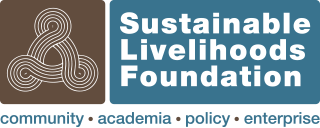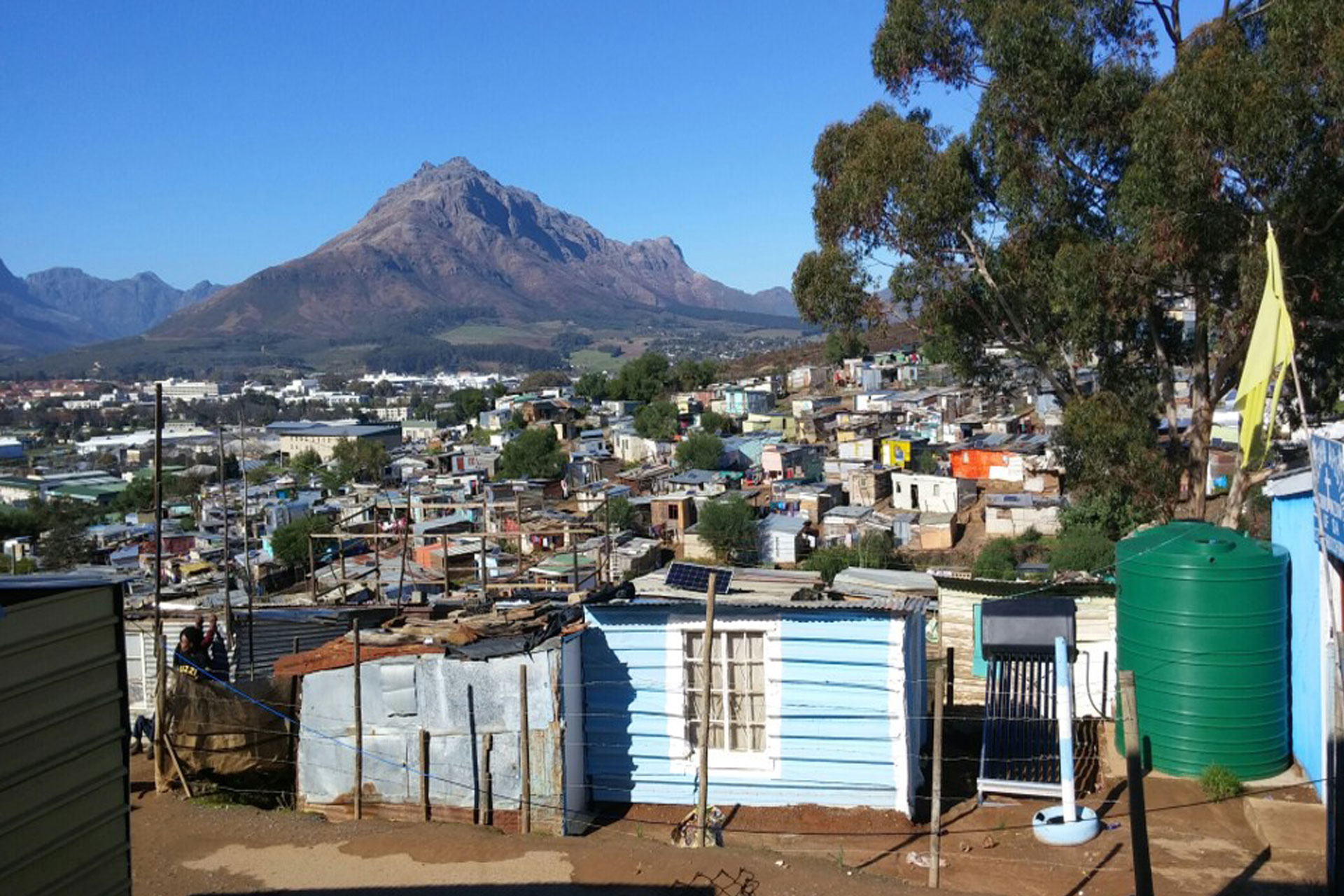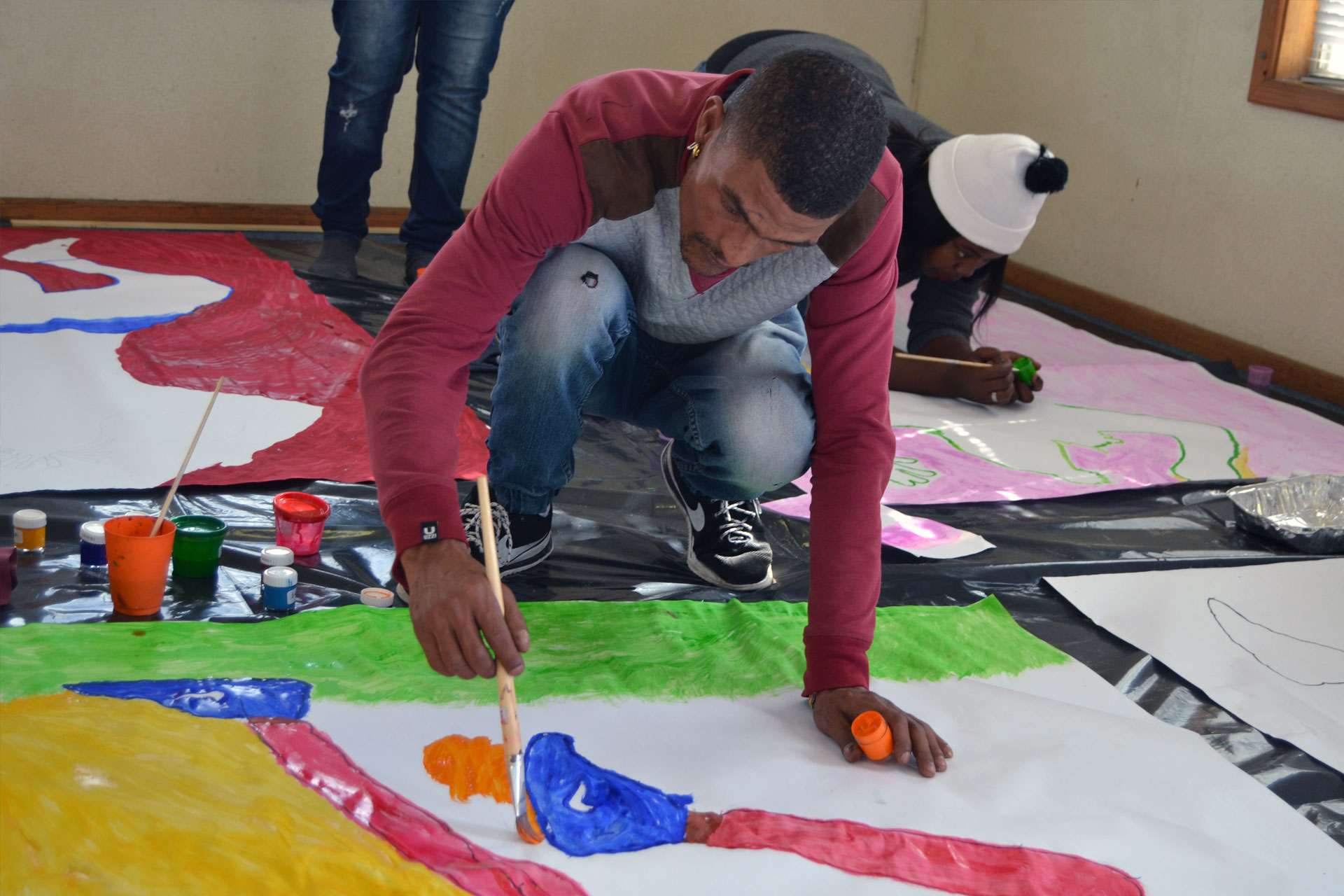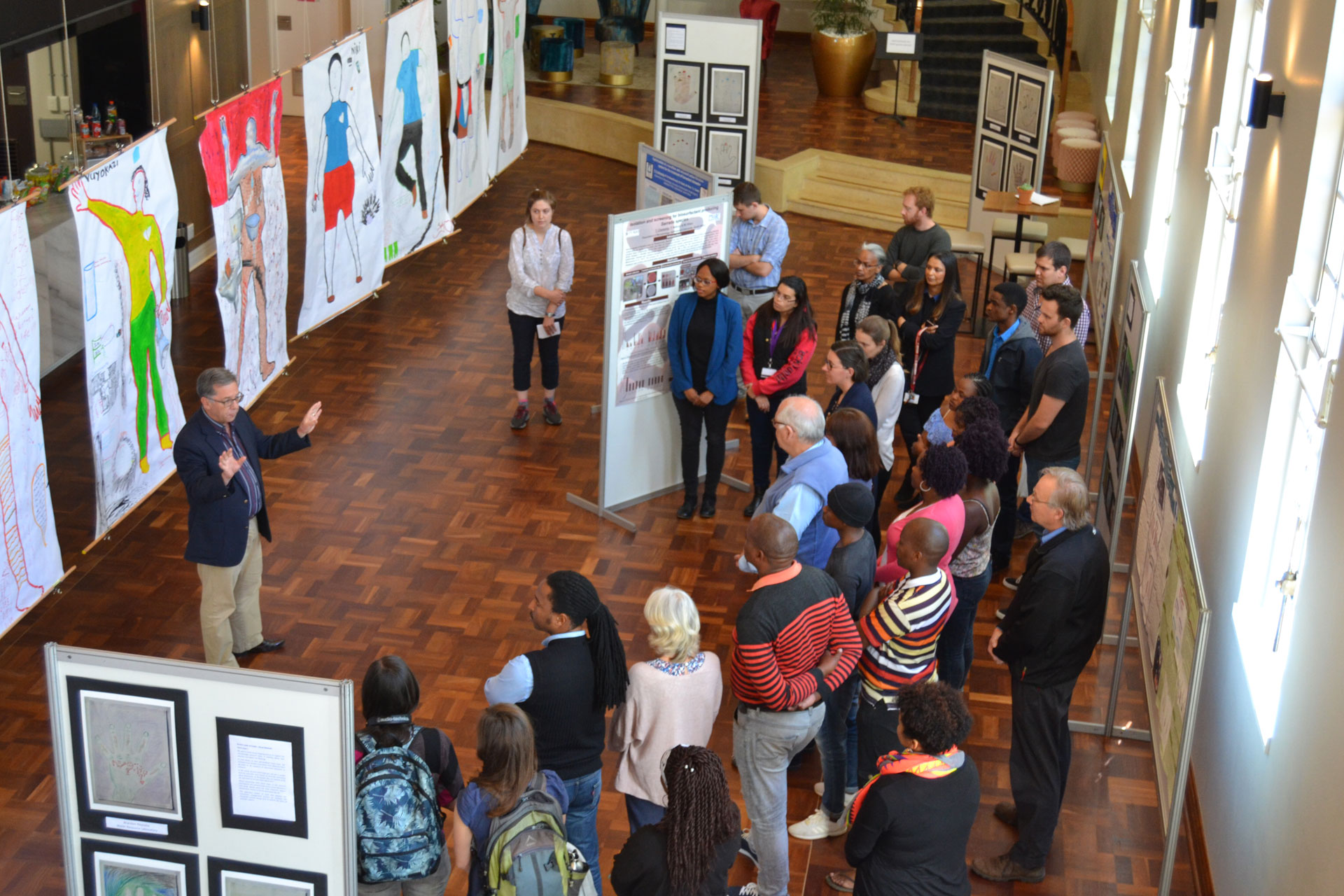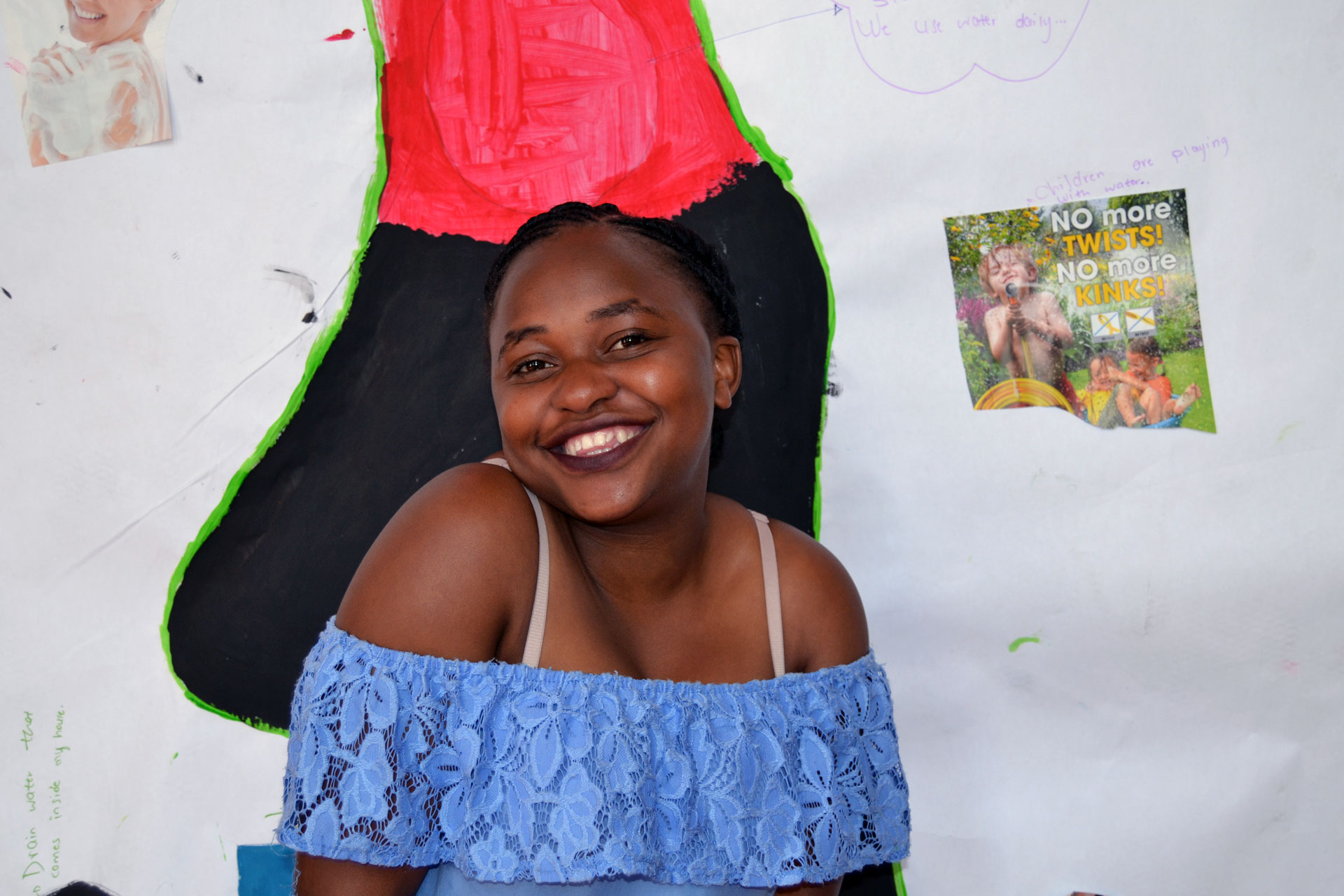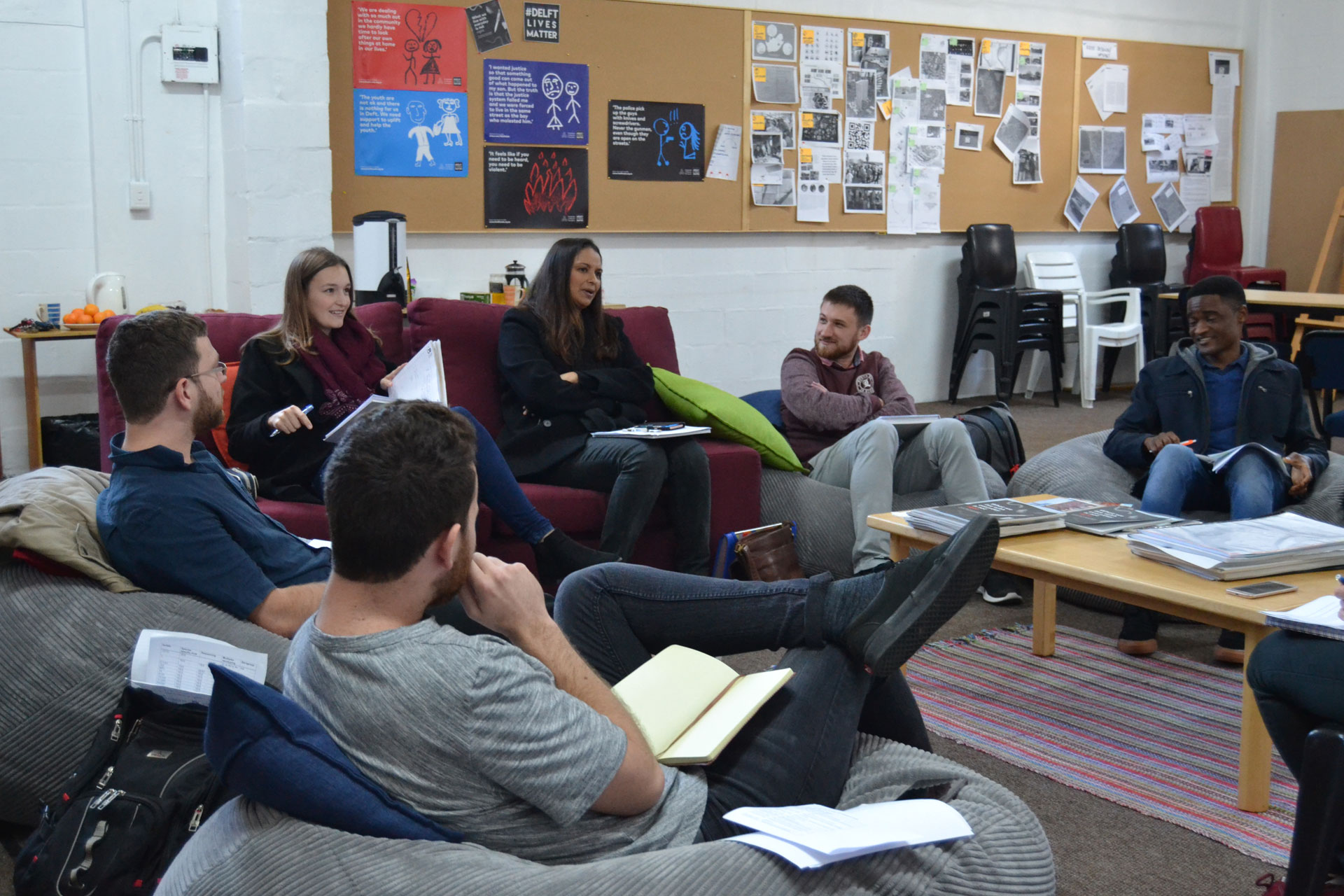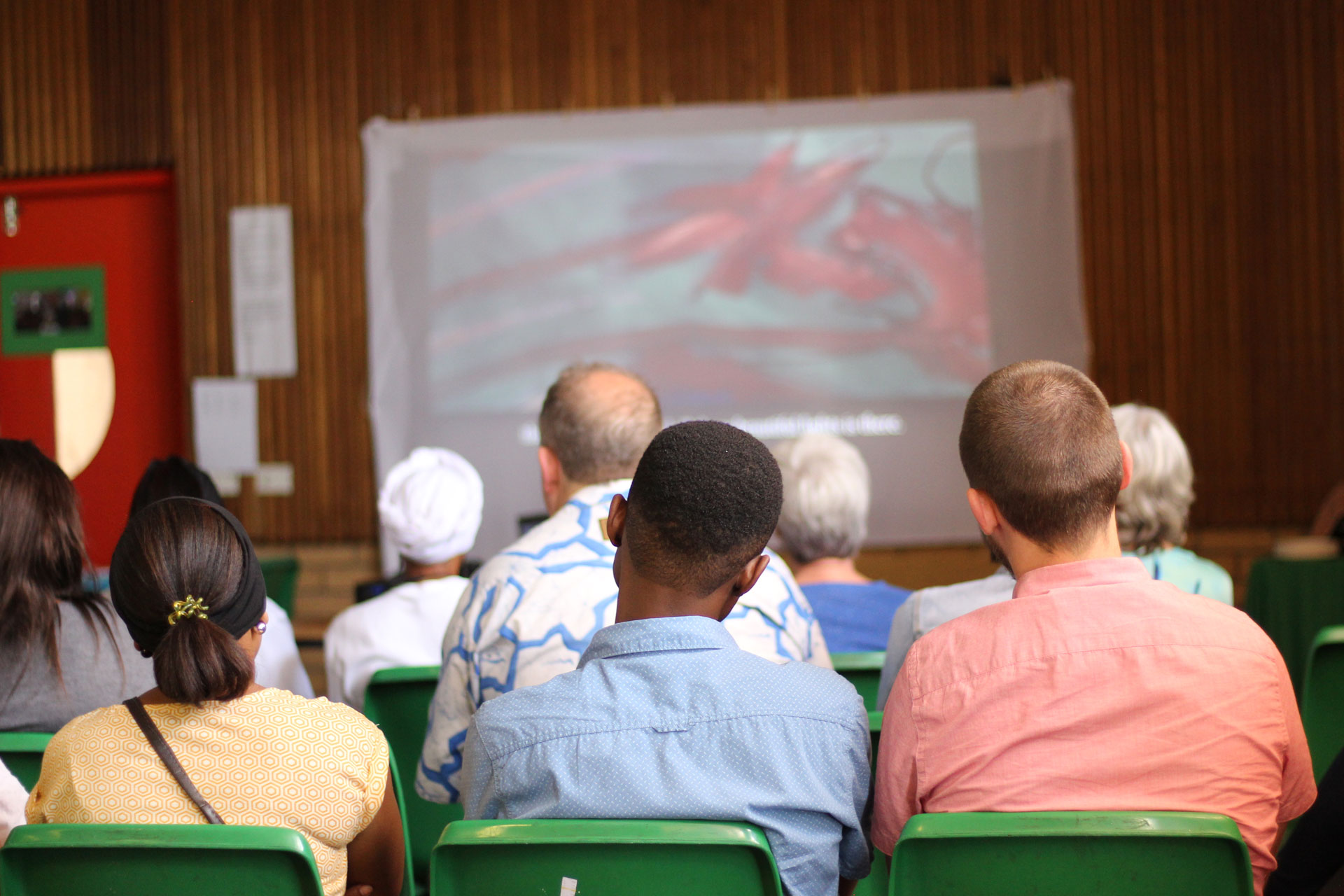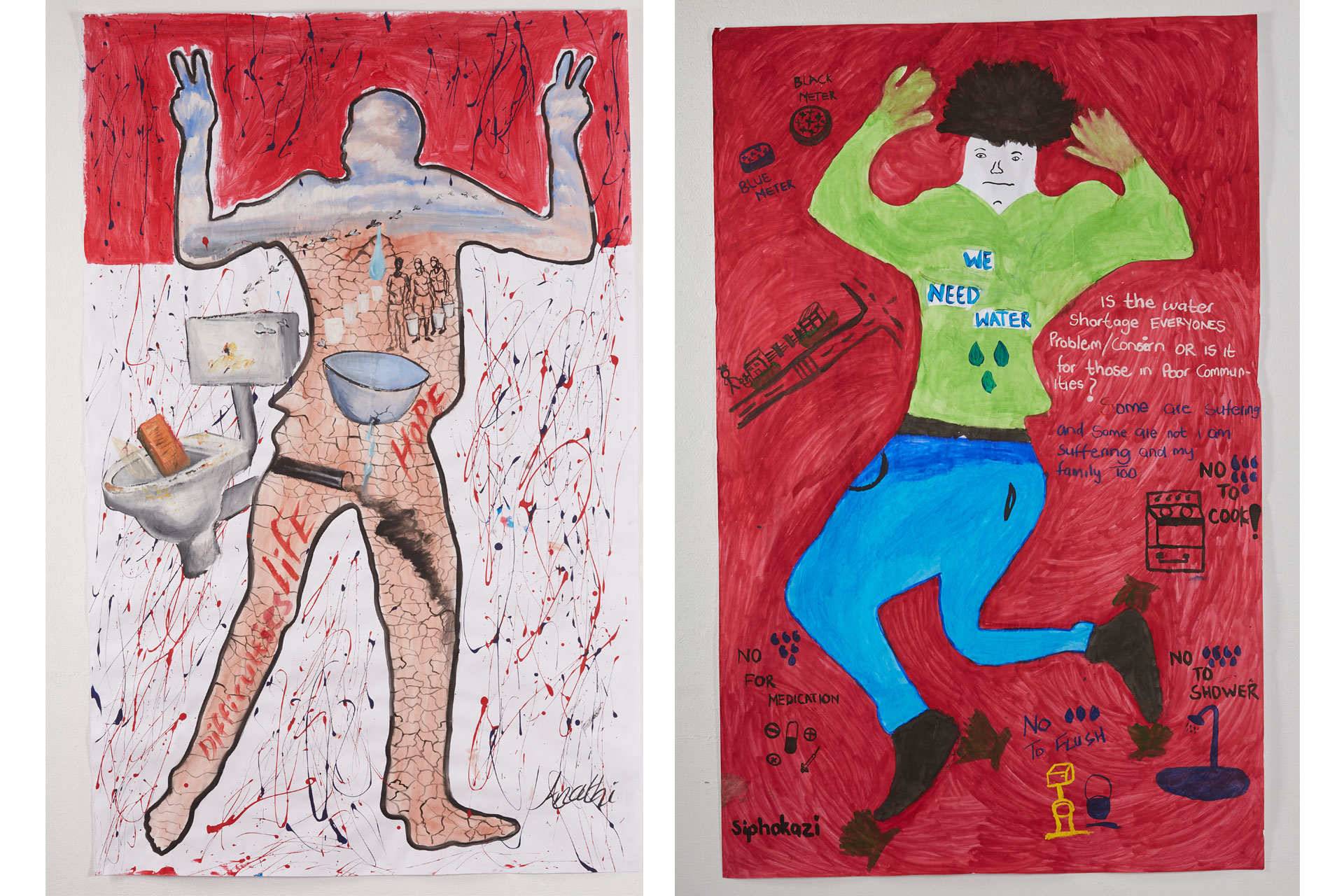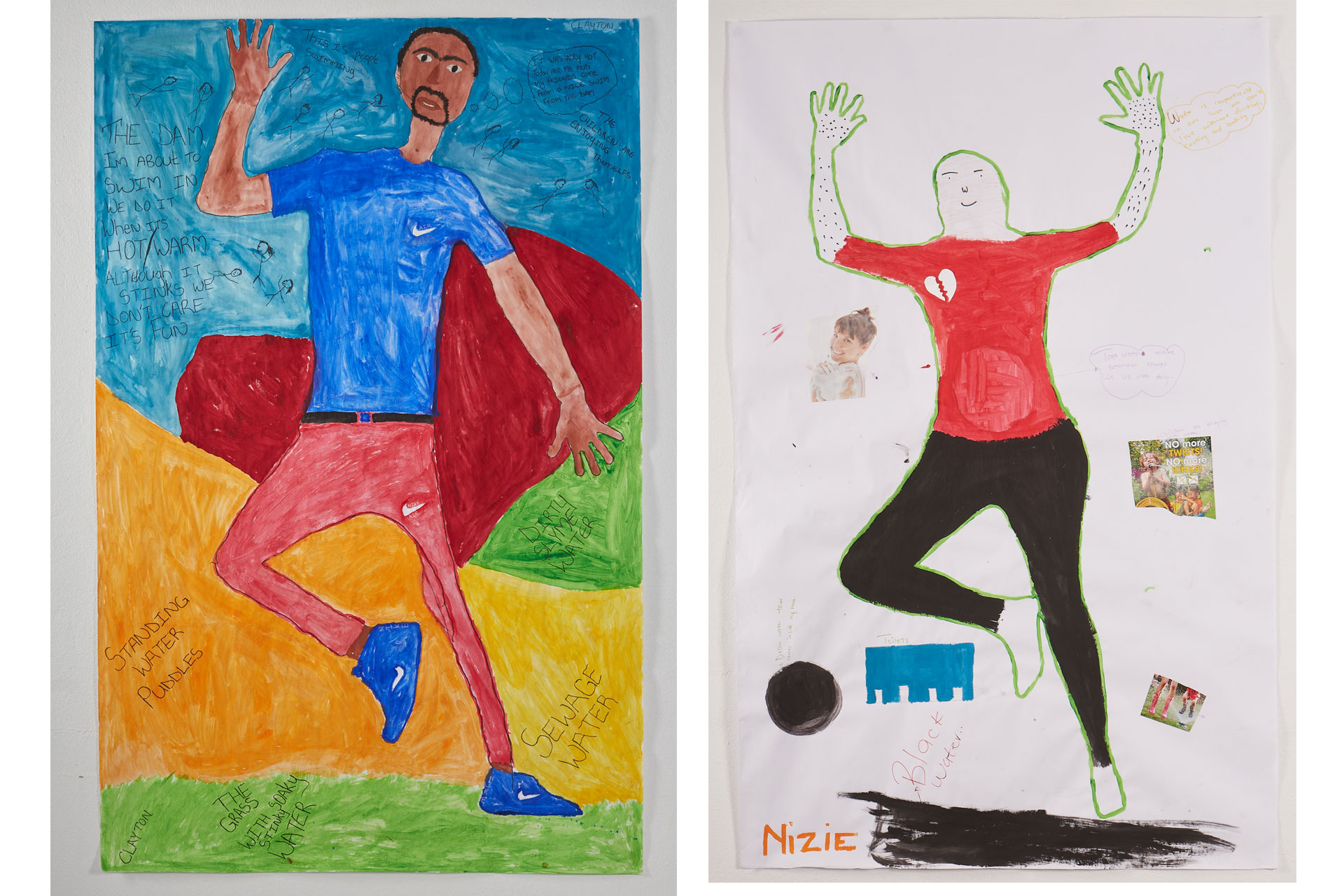Bucket Loads of Health
Bucket Loads of Health (BLH) was a community engagement in health science research project that responded to health challenges induced by a severe drought in the Western Cape (WC) province (2017 – 2018). In attempts to comply with extreme water restrictions, WC residents experimented with water saving methods, including harvesting rainwater and recycling grey water. This introduced a serious public health concern, as the storage and reuse of both grey water and rainwater carry numerous, significant health risks.
Professor Wesaal Khan and her team at Stellenbosch University (SUN) had installed rainwater collection tanks in Enkanini, an informal settlement on the outskirts of Stellenbosch. The SUN team were working to understand how levels of pathogenic micro-organisms – that contaminate harvested rainwater and make it unsafe for drinking – can be reduced.
The BLH project brought the microbiology team together with residents of two communities in the WC that faced highly constrained access to water: Enkanini and the township of Delft in Cape Town.
With support from SLF, community members from Delft and Enkanini participated in body mapping, personal story telling and filmmaking including the production of musical accompaniments to reflect on their experiences around water shortage, water saving and water reuse and how these connected to their health and wellbeing.
Through a knowledge exchange and co-learning process, the creative outputs were shared with the microbiologists who in turn engaged the community members in the aims, objectives and techniques of their research including a tour of their laboratory and department at SUN. Dialogues around the health risks associated with using alternative water sources were facilitated to encourage the generation of community-driven ideas for safe water saving and recycling.
The outputs and learning from the project (see below) were made publicly available through exhibition events held in the vicinity of the participating communities. The BLH project made science related to climate change more accessible and relevant to affected communities.
Project leader:Dr. Gill Black, Sustainable Livelihoods FoundationDuration:12 months
January – December 2018Funders:Wellcome; Public Engagement AwardPartners:Water Resource Lab; Stellenbosch University; The Delft Water Clan; Abakhuthazi Bomphakathi; Pam Sykes; Victoria Hume; Kayla Petersen
Project outputs and resources
‘Our Water Challenges’ is a short film surfacing potent insights about the frustrations, worry and heartache of the people who live in Enkanini informal settlement – caused by the unsanitary disposal of wastewater and waste food in the settlement. The film-makers, who call themselves underline the need for urgent government intervention whilst making a bold call to action, encouraging their fellow community members to recognize and change entrenched and unhealthy water disposal practices.
‘Doing it Differently’ is a mini-documentary providing a synopsis of the creative, participatory public engagement process facilitated by the SLF team during our Bucket Loads of Health project. It shows the innovative visual methods approach taken to foster knowledge exchange within a scientific research context.
Steps Toward Engagement Integrity: Learning From Participatory Visual Methods in Marginalized South African Communities is an academic paper based on the Bucket Loads of Health project. The paper, written by Gill Black and Pam Sykes, was published in Frontiers in Public Health in 2022.
Bucket Loads of Health involved producing a series of 4 short films illustrating the far-reaching effects of the severe drought in the Western Cape in 2018. A body mapping approach enabled us to work in close partnership with the Delft Water Clan and explore their embodied experiences of the water crisis.
‘Community Spirit’ is the first film in this mini-series. Clevin Consul and three other Delft residents share their stories about how the water restrictions put a stop to activities that bring joy and meaning to their lives. We see how a shortage of water has disrupted community cohesion and threatened important voluntary services in the township.
‘Health, Stress and Sanitation‘ is the second film of this mini-series. Luthfiyah Tites and three other residents of the township of Delft share their stories about the ways in which the water restrictions have compromised their health and wellbeing. We see how a shortage of water prevents every day activities such as maintaining personal hygiene, taking medication and caring for children. The film also shows how the water crisis has surfaced anger between neighbours and increased levels of tension within the Delft community.
‘Water and Loss’ is the third film in this mini-series. Tashwell Davids and Rugshana Sait describe how the water restrictions have led to the devastating loss of loved ones and the harsh disruption of devoted religious practice. Norton Adams closes with a reflection on his spiritual connection to rainfall and the hope it brings to his life.
In Children, Water and Recreation Clayton and other residents of Delft township share stories about how important water is for recreation and fun in the community. This fourth film in the series film surfaces potent insights about the limited spaces and opportunities for children to play in Delft township under Cape Town’s extreme water restrictions. The loss of these opportunities left residents without other means of enjoyment or the ability to form friendships with peers and neighbours.
